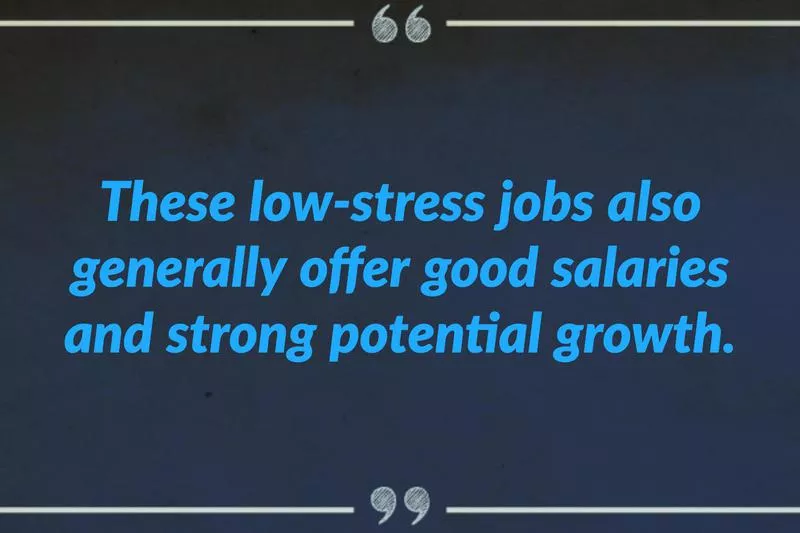Is your job stressing you out? Have you thought you need to look into doing something else for a career before you pull a Jerry Maguire? The American Psychological Association’s 2019 Stress in America survey revealed that 64 percent of Americans say work stresses them out.
But that doesn’t mean Americans don’t like their jobs. Many of the most stressful jobs are also jobs that people are passionate about, like journalism and medicine.
Of course, bad bosses, hostile workplaces, job insecurity and the like can make even the least stressful job extremely stressful. Today’s 24/7 digital workplace also means bosses expect employees to be available at all hours, which can make the workday feel interminable and more stressful. But even without those kinds of negative factors, some jobs are just more stressful than others.
On the other hand, some jobs are inherently less stressful than others. And a less stressful job can contribute to a healthier life and lifestyle.
To help you achieve a less-stressful lifestyle, we’ve tried to nail down just what the best low-stress jobs might be.
How We Developed Our List

We based our research on Careercast.com’s Best Jobs of 2018 list because of the variety of components it used to evaluate the professions. Instead of just looking at stress, CareerCast used varied criteria, including income, growth outlook, work environment and stress.
As for the direct question of whether or not the position was stressful, the jobs were evaluated using 11 factors: travel, growth potential, physical demands, hazards encountered, environmental conditions, meeting the public, competitiveness, death (own life at risk), life of another at risk, deadlines and working in the public eye.
We also took into account the stress tolerance level, according to the Occupational Information Network, or O*NET, a site developed by the U.S. Department of Labor. The site ranks jobs from one to 100 according to multiple factors, one of which is stress tolerance. The higher the number, the higher the tolerance for stress that the position requires.
Out of the jobs ranked by O*NET, urologists had the highest stress tolerance requirement, while professional models required the least stress tolerance. Interestingly, there were quite a few discrepancies between what O*NET considered a stressful job (or a job that necessitates a high tolerance for stress) and what CareerCast determined was a stressful job. Not all of the positions listed on O*NET include the ranking for stress tolerance.
Here’s our list of 14 low-stress jobs that also offer good salaries and strong potential growth, based on CareerCast’s analysis. Some of these jobs have stress. But overall, here’s a solid place to start looking for a good, low-stress career.